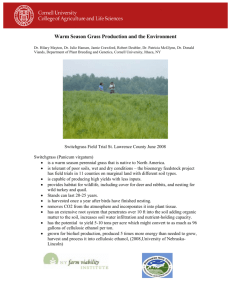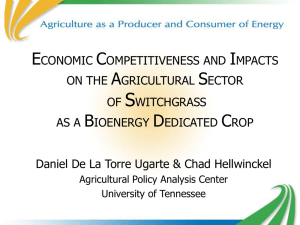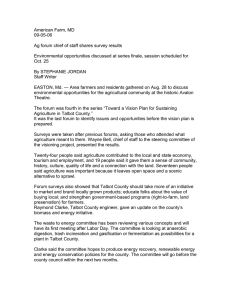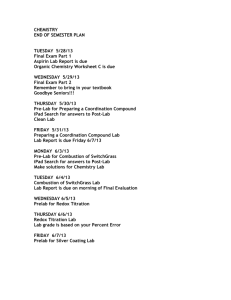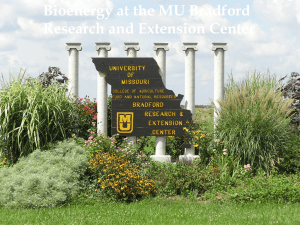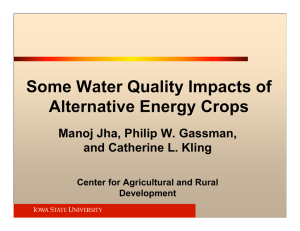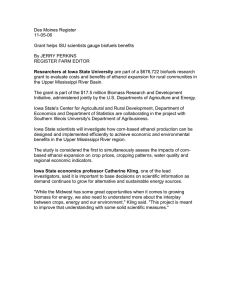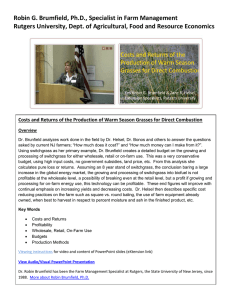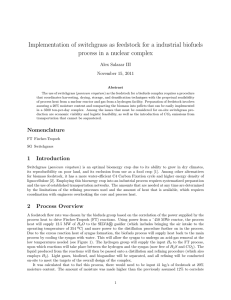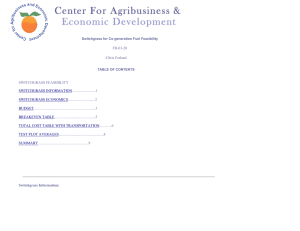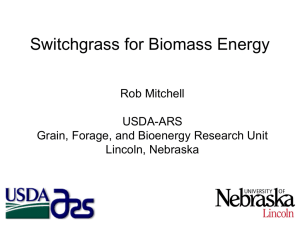Des Moines Register 03-18-07
advertisement
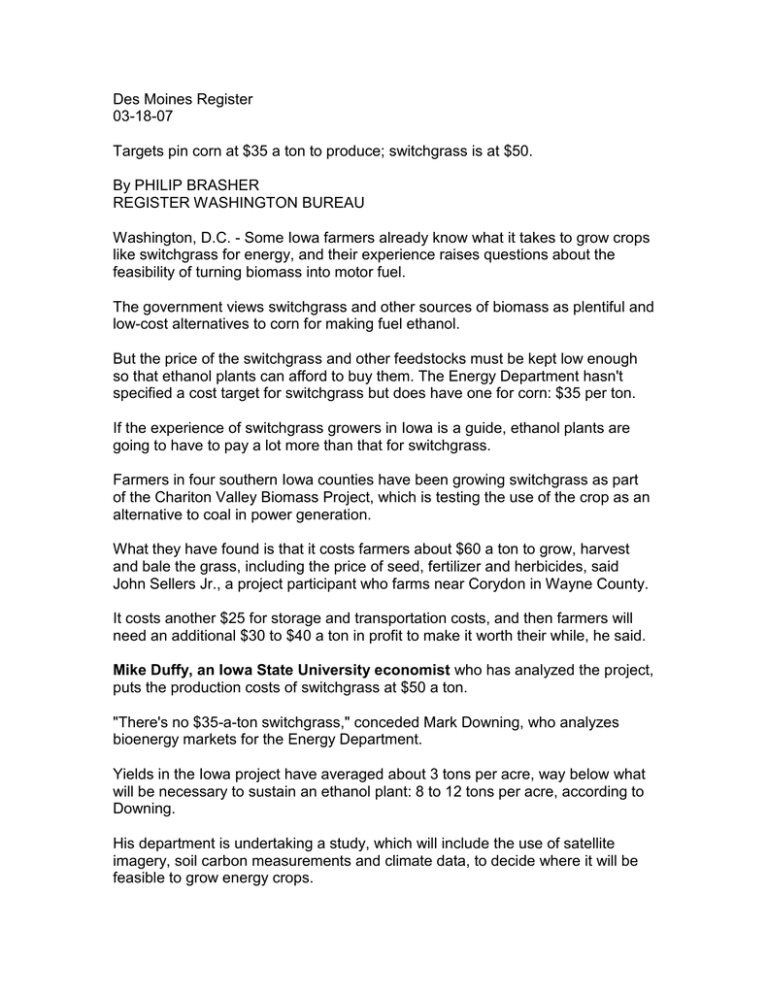
Des Moines Register 03-18-07 Targets pin corn at $35 a ton to produce; switchgrass is at $50. By PHILIP BRASHER REGISTER WASHINGTON BUREAU Washington, D.C. - Some Iowa farmers already know what it takes to grow crops like switchgrass for energy, and their experience raises questions about the feasibility of turning biomass into motor fuel. The government views switchgrass and other sources of biomass as plentiful and low-cost alternatives to corn for making fuel ethanol. But the price of the switchgrass and other feedstocks must be kept low enough so that ethanol plants can afford to buy them. The Energy Department hasn't specified a cost target for switchgrass but does have one for corn: $35 per ton. If the experience of switchgrass growers in Iowa is a guide, ethanol plants are going to have to pay a lot more than that for switchgrass. Farmers in four southern Iowa counties have been growing switchgrass as part of the Chariton Valley Biomass Project, which is testing the use of the crop as an alternative to coal in power generation. What they have found is that it costs farmers about $60 a ton to grow, harvest and bale the grass, including the price of seed, fertilizer and herbicides, said John Sellers Jr., a project participant who farms near Corydon in Wayne County. It costs another $25 for storage and transportation costs, and then farmers will need an additional $30 to $40 a ton in profit to make it worth their while, he said. Mike Duffy, an Iowa State University economist who has analyzed the project, puts the production costs of switchgrass at $50 a ton. "There's no $35-a-ton switchgrass," conceded Mark Downing, who analyzes bioenergy markets for the Energy Department. Yields in the Iowa project have averaged about 3 tons per acre, way below what will be necessary to sustain an ethanol plant: 8 to 12 tons per acre, according to Downing. His department is undertaking a study, which will include the use of satellite imagery, soil carbon measurements and climate data, to decide where it will be feasible to grow energy crops. He said the high cost of Iowa land is a major impediment to biomass crop production in the state. "That's going to be really tough, to get a farmer to get out of corn and produce switchgrass," he said.
